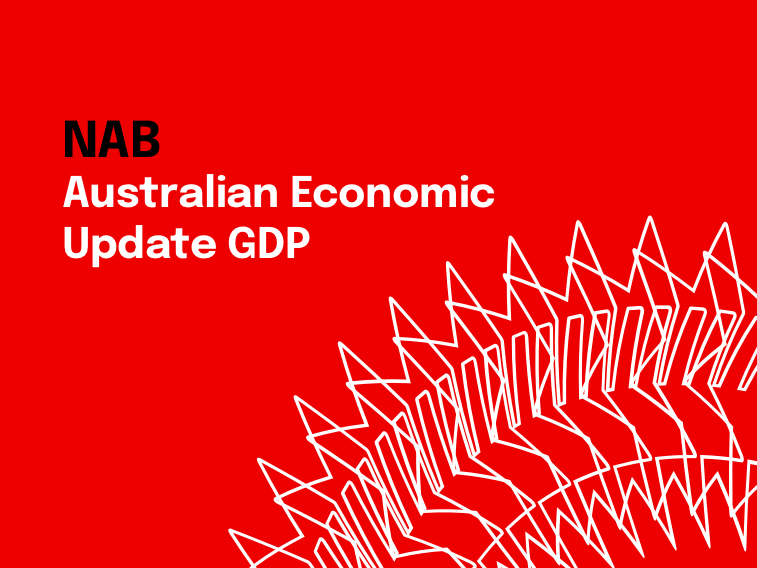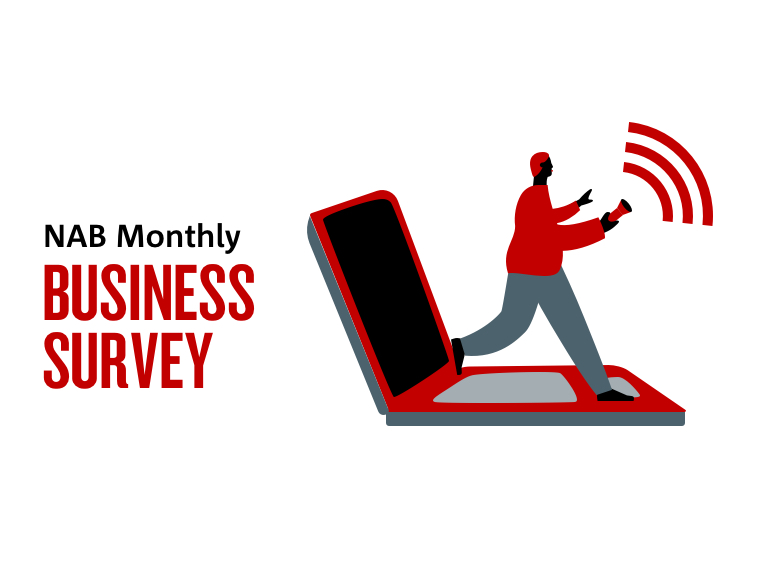Consumers lead the way


Insight
Business confidence falls further while conditions hold up.

Our podcast series to accompany the NAB Monthly Business Survey continues, giving you a 10 minute summary of the key survey developments this month. Listen now.
If listening on a mobile device, click listen in browser.
Business confidence fell to a below-average +1 index point in June as global uncertainty, looming interest rate hikes and inflation continued to cloud the outlook. Fears over these impacts on household consumption were particularly evident with confidence in the retail sector taking a significant hit. Business conditions declined by a more modest 2pts to +13 index points but remained well above average. Conditions have remained strong across the states and across most industries – including retail. Soft conditions in construction remain an outlier as building costs continue to rise, squeezing profits despite a large ongoing pipeline of work in the sector. While confidence eased, forward orders remain elevated, as does capacity utilisation, suggesting that conditions will likely remain healthy in the near-term. The supply side remains a challenge, with survey measures of both input and labour costs growth reaching new records in June at 3.6% and 4.8% respectively in quarterly terms. Product (output) price growth also strengthened and retail price inflation remained elevated at 2.9%. Bringing together retail and services industry price data from the survey suggests a very high print for underlying inflation when the Q2 CPI is released later in July.
Confidence fell 5pts to +1 index point, while business conditions eased 2pts to +13 index points, still above average. All three components of conditions eased, with trading conditions down 3pts, profitability down 4pts and employment down 2pts.
“Confidence sank below average in June as inflation and interest rate hikes clouded the outlook,” said NAB Group Chief Economist Alan Oster. “Confidence in the retail sector took a significant hit, falling more than 20pts to be well into negative territory, reflecting concerns about the outlook for household spending.”
“While confidence fell, business conditions held up in June,” said Mr Oster. “Conditions remain strong across the states and in most industries. Construction continues to be the only real outlier with building costs weighing, despite a healthy pipeline of work in the sector.”
Forward indicators remained healthy with capacity utilisation at 84.8% (down slightly from 84.9% in May) and forward orders down 2pts to +10 index points.
“Forward indicators softened slightly in June but still suggest a fairly positive outlook for the coming months,” said Mr Oster. “Capacity utilisation remains around the record high levels seen just before the Delta outbreak in 2021, which should support investment and hiring over coming months.”
Cost price growth hit new survey records in June – eclipsing the previous peaks seen earlier in the year – with labour cost growth at 3.6% in quarterly terms and purchase cost growth at 4.8%. Product (output) price growth also strengthened with retail sector inflation remaining elevated at 2.9%.
“Businesses continue to face escalating cost pressures,” said Mr Oster. “Both purchase costs and labour costs are running at record levels in the history of the survey, which reflect the significant global supply shocks that are still flowing through as well as domestic energy disruptions and the very tight local labour market.”
“Higher costs are clearly translating into higher inflation,” said Mr Oster. “Price measures in the June survey confirm we are heading for another very strong inflation print for Q2 when CPI is released later this month – possibly as high as 1.5-1.6% in underlying terms, which would be the fastest underlying inflation on record.”
“Overall, the survey suggests firms are increasingly wary of how the economy will hold up over the months ahead, despite continuing to experience fairly strong conditions at present,” said Mr Oster. “Still, reasons for optimism remain – including elevated household savings and a strong labour market – which will weigh against concerns about the impact of inflation and interest rate rises on consumers. As such, the extent to which businesses’ fears are justified remains to be seen.”
For more information, please see the NAB Monthly Business Survey (June 2022)
© National Australia Bank Limited. ABN 12 004 044 937 AFSL and Australian Credit Licence 230686.